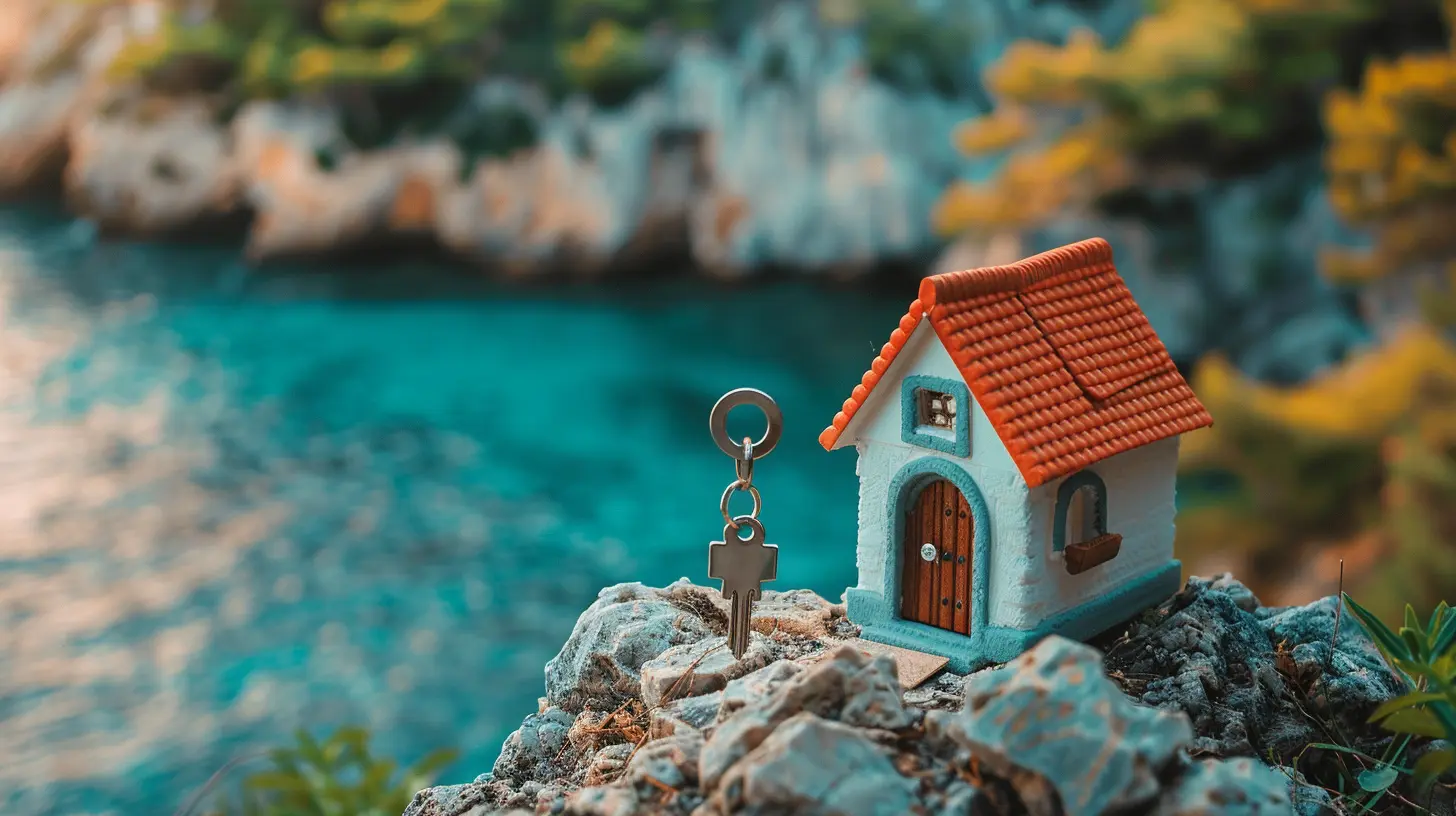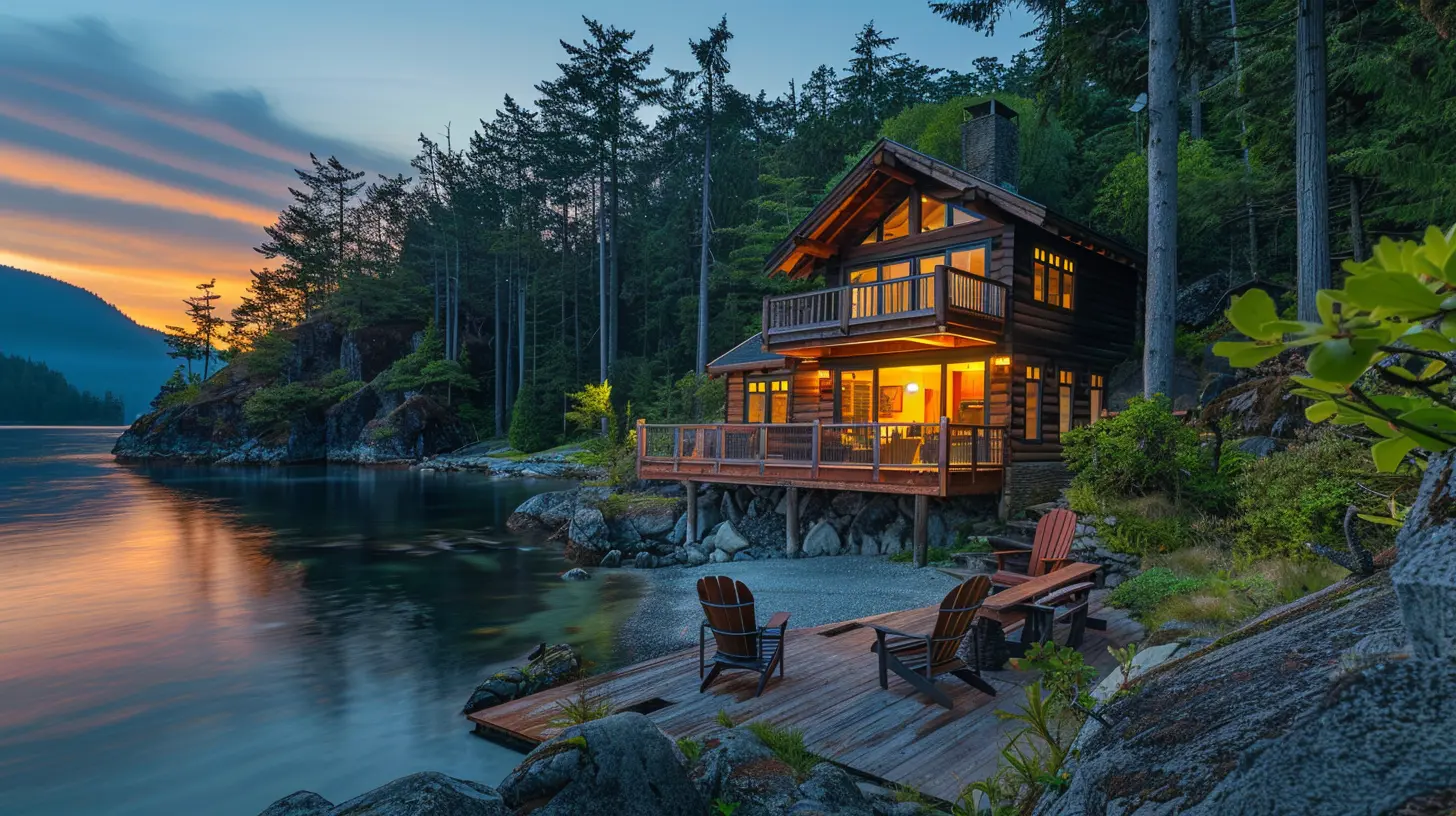Important Legal Considerations When Buying a Vacation Property
7 August 2025
Buying a vacation home sounds like a dream, right? Imagine sipping coffee on a sun-drenched patio, or hosting family barbecues with a view of the ocean or mountains. But before you kick off your shoes and settle into vacation mode, there’s a not-so-glamorous side you need to tackle first—legal stuff.
I know, nobody wants to get bogged down in contracts and clauses when they’re picturing sandy toes or snowy slopes. But overlooking legal details can turn your dream getaway into a financial nightmare. So, let’s cut through the legal jargon and talk about the important legal considerations when buying a vacation property. This guide will walk you through what you need to know—without putting you to sleep.
🏠 Why Legal Prep Matters More with Vacation Homes
Buying a primary residence and buying a vacation home are two totally different animals. Primary homes usually come with tried-and-true processes, regulations, and protections. Vacation properties? Not so much. They might be in a different state, a foreign country, a homeowners association (HOA), or a rental zone—all of which come with their own rules, taxes, and potential headaches.If you're not careful, what seemed like a great investment can become a money pit with legal entanglements you never saw coming.
✅ Get Clear on Property Title and Ownership
Ever heard the saying, “Don’t build your castle on sand”? That applies here. The most basic—but critically important—step is making sure the seller actually has legal ownership of the property.Title Search and Title Insurance
You’ll want a full title search performed to check for any liens (debt attached to the house), disputes, or legal restrictions. Think of it as your property's rap sheet—you want a clean one.And don’t skip title insurance. It protects you against any unexpected claims after you buy, like someone popping up saying they inherited the house from an obscure uncle.
Foreign Buyers Beware
Buying abroad? Some countries have strict foreign ownership laws. You might not even be allowed to own property outright. In some places, it can only be leased from the government, or you may need to set up a domestic corporation to hold the title.Tip: Hire a local lawyer who speaks the language and knows the law. Google Translate won’t cut it here.
📜 Zoning Laws and Land Use: What Can (And Can’t) You Do?
Sure, your dream is to turn that lakefront cabin into a weekend Airbnb hotspot. But is it allowed?Vacation Rentals and Short-Term Stays
Many cities and towns limit or outright ban short-term rentals. Some allow them but impose heavy regulations—permits, inspections, taxes, and neighborhood approval.If your plans involve renting the home to help cover costs, you must check local zoning codes and HOA rules first. A few wrong assumptions here could seriously mess with your ROI.
Building and Renovation Restrictions
Thinking of adding a wraparound deck, a hot tub, or a second floor? Not so fast. Some properties, especially in scenic or historic areas, have strict land use rules and conservation limitations.Always get the lay of the land (literally) before making big plans.
💰 Taxes, and Not Just the Obvious Ones
Taxes can be sneaky when it comes to vacation properties. You’re not just dealing with your regular annual property tax bill. There could be hidden costs lurking in the fine print.Property Taxes
Vacation homes are often classified differently than primary residences. That means fewer exemptions—and higher tax rates. Some towns even have “secondary residence” surcharges.Capital Gains Taxes
When you sell a vacation home, you might get hit with capital gains taxes on the profit. Unlike your primary home, vacation property gains aren’t usually excluded unless you’ve lived in it for a certain amount of time.Rental Income Taxes
Planning to rent it out? Income from short-term rentals is taxable. Plus, you may need to collect and remit lodging taxes—a.k.a. hotel taxes—depending on where the property is located.The bottom line? Talk to a tax advisor who understands both real estate and vacation rentals. A few hundred dollars now could save you thousands later.
🛑 HOA Rules and Regulations: Read the Fine Print
If the property is part of a community association, brace yourself for the HOA rules. This is where many buyers get tripped up.What Are You Allowed to Do?
Can you paint your front door bright blue? Park an RV in the driveway? Rent short-term? Install a fence for your dog? All of these (and more) might be subject to approval—or outright bans.Review the HOA’s covenants, conditions, and restrictions (CC&Rs) like your vacation depends on it. Because it does.
Monthly Dues and Special Assessments
HOAs love fees. You’ll likely pay monthly dues, plus sudden “special assessments” for community improvements or repairs. Those fees can add up fast, especially if you’re not using the property year-round.⚖️ Legal Paperwork You Can’t Ignore
Let’s be real—your real estate agent may walk you through a lot, but they’re not a lawyer. Some documents and situations require legal review, no matter how friendly the sellers are.Sales Contracts
Never, ever sign a sales contract without having it reviewed by a real estate attorney—especially for out-of-state or international purchases. These contracts outline your rights, responsibilities, contingency clauses, and more. One missed detail could cost you big time.Disclosures
Most states require sellers to disclose issues like mold, water damage, pest infestations, or other major defects. But disclosure laws vary, and some sellers may omit things “conveniently.”That's why inspections are non-negotiable. Always hire a professional inspector, and if your gut says something’s off, listen to it.
🧭 Estate Planning Considerations
This one is rarely talked about—but it matters more than you think.Vacation properties are often viewed as legacies to pass down to kids or share among siblings. But unless you set up the right legal structure, things can turn ugly fast. Think fights over who pays the taxes, who gets to use it during holidays, or whether to rent it out.
Ownership Structure
Consider options like:- Joint tenancy
- Family LLCs or trusts
- Life estates
Each offers different benefits for transfer, control, and liability. A quick meeting with an estate attorney can go a long way toward keeping the peace later.
🚨 Liability and Insurance: Better Safe Than Sorry
Vacation homes often carry higher risks. Think renters slipping by the pool, or pipes freezing while you're not there for months. You need more than basic homeowners insurance.Consider These Coverages:
- Vacation rental insurance if you plan to rent- Umbrella liability policy for large claims
- Flood/hurricane/wildfire insurance, depending on location
Talk with your insurance agent to create a coverage plan that matches your situation. It's easier (and cheaper) than a lawsuit.
🧭 Financing a Vacation Property: Not as Easy as It Seems
Unless you’re paying all cash, you’ll need financing. But getting a loan for a vacation property isn’t like your first mortgage.Lenders See Risk
Lenders consider second homes riskier—so rates, down payments, and terms can be tougher. You typically need:- At least 10-20% down
- A good credit score
- Proof of sufficient income/assets
International Financing
Buying abroad? You may not even be able to use a U.S. bank. Some countries require you to finance locally—which often means higher interest rates and stricter requirements.This isn't a deal-breaker, but go in with eyes wide open.
🗺️ Final Checklist Before You Buy
To wrap this up—and keep things super clear—here’s a vacation home legal checklist you can keep handy:✅ Hire a real estate attorney
✅ Get a title search and title insurance
✅ Confirm zoning and short-term rental rules
✅ Call the local planning department
✅ Read the HOA’s CC&Rs
✅ Have inspection reports reviewed
✅ Double-check tax implications
✅ Secure proper insurance
✅ Review the contract before signing
✅ Plan your ownership structure for legacy
✨ Final Thoughts
Buying a vacation home isn’t just a property investment—it’s a lifestyle investment. But it’s also a legal minefield if you go in blind.The good news? With the right prep, professionals, and a little patience, you can get that dreamy getaway without the drama. So go ahead—start picturing those lazy Sundays and sunset cocktails—but make sure your legal foundation is solid before you start picking out patio furniture.
Happy house hunting!
all images in this post were generated using AI tools
Category:
Vacation HomesAuthor:

Travis Lozano
Discussion
rate this article
1 comments
Zayne Bass
Buying a vacation property? Besides dreaming of beach sunsets and mountain hikes, don’t forget the legal stuff! It’s like ordering a fancy cocktail—make sure you know what’s in it before you take a sip! Cheers to smart buying!
August 14, 2025 at 12:45 PM

Travis Lozano
Absolutely! Just like a cocktail, understanding the legal aspects is essential for a smooth purchase. Cheers to informed decisions!


